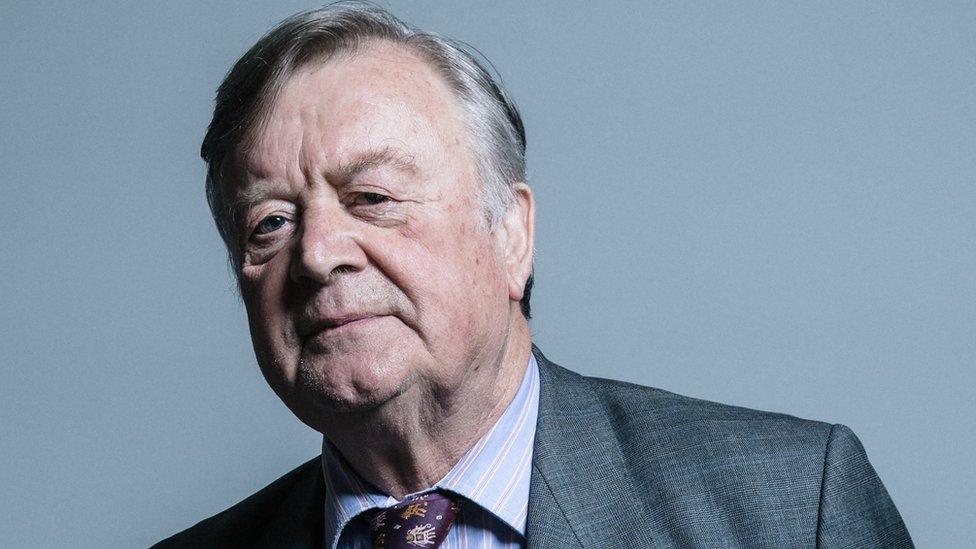Brexit: Ken Clarke’s five decades as a Tory MP
- Published
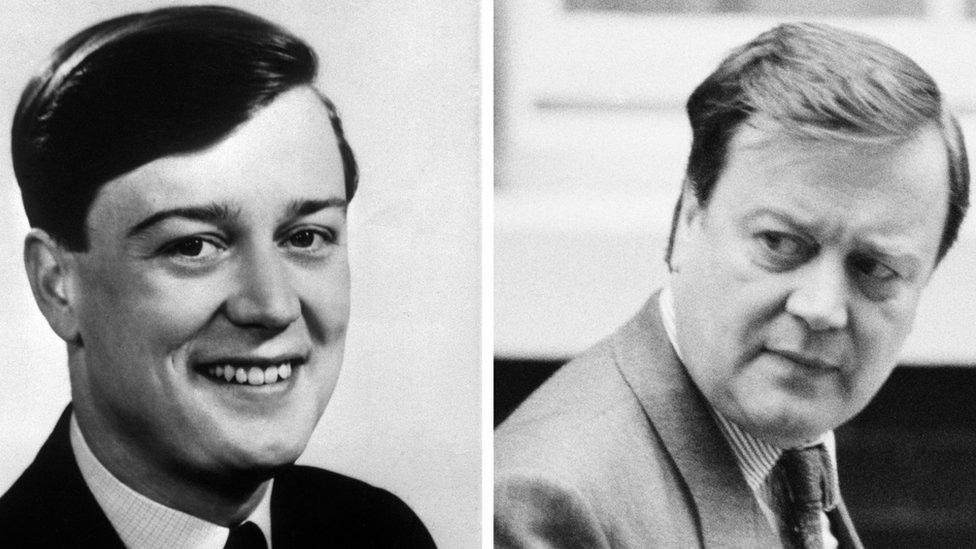
Ken Clarke in 1970, the year he became MP for Rushcliffe, and in 1990, after Margaret Thatcher resigned as prime minister
After 49 years as a Conservative MP, one of the so-called big beasts of politics Ken Clarke was effectively thrown out of the Tory Party.
Alongside 20 fellow Conservatives, he rebelled against Boris Johnson's government on Tuesday night, leading to the PM's first Commons defeat.
As the possibility of a general election looms, the Rushcliffe MP has already confirmed he will not be seeking re-election.
BBC News looks back at the 79-year-old's five-decade career.
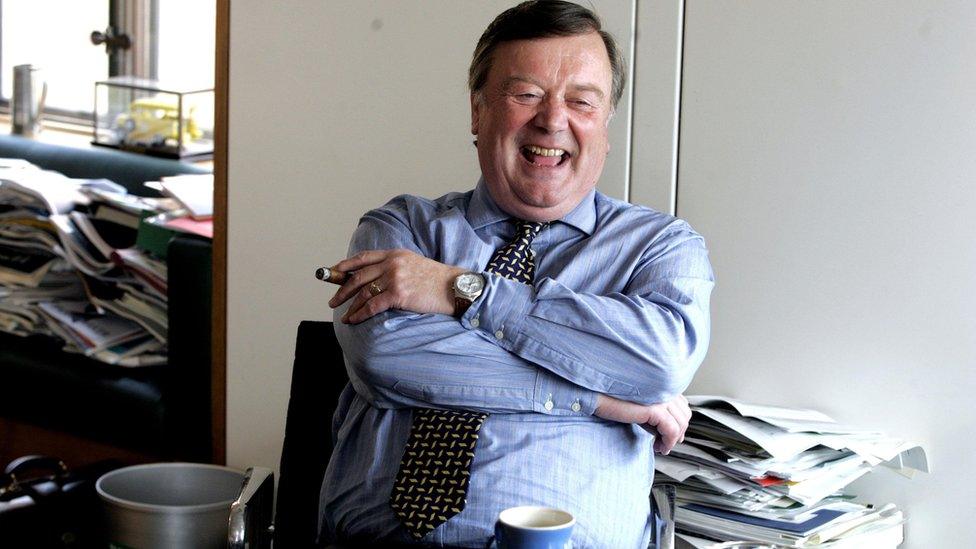
Mr Clarke is known for his love of cigars
Born on 2 July 1940 to what he describes as an "impeccably working class" family in West Bridgford, Mr Clarke went on to win the seat of Rushcliffe in 1970.
As well as allowing him to serve Nottingham, where he moved aged nine, the constituency also let him indulge in his love of sport - football at Nottingham Forest and cricket at Trent Bridge.
The Nottinghamshire fan can regularly be seen in the members' pavilion, where he once lost the key to one of his ministerial red boxes in 2010.
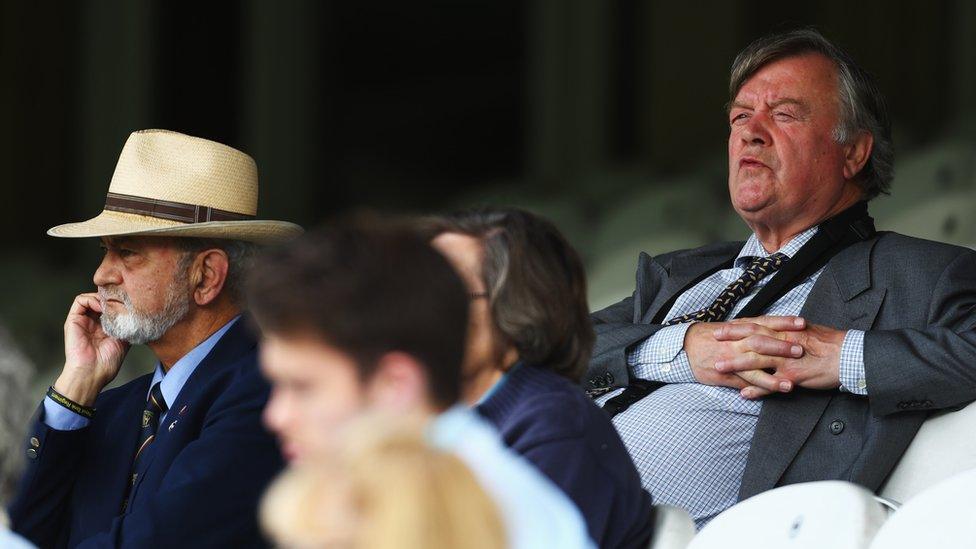
Mr Clarke is a lifelong cricket fan and is often seen supporting Nottinghamshire County Cricket Club
Mr Clarke came to prominence under Margaret Thatcher's government, where he served in several ministerial positions.
He eventually became health secretary, despite his love of beer and cigars.
During his ministerial career, he became known for allegedly wearing brown suede Hush Puppies, which became his trademark in the British media.
But in his autobiography Kind Of Blue, Mr Clarke said he never wore Hush Puppies - but instead owned handmade shoes from Crockett and Jones.
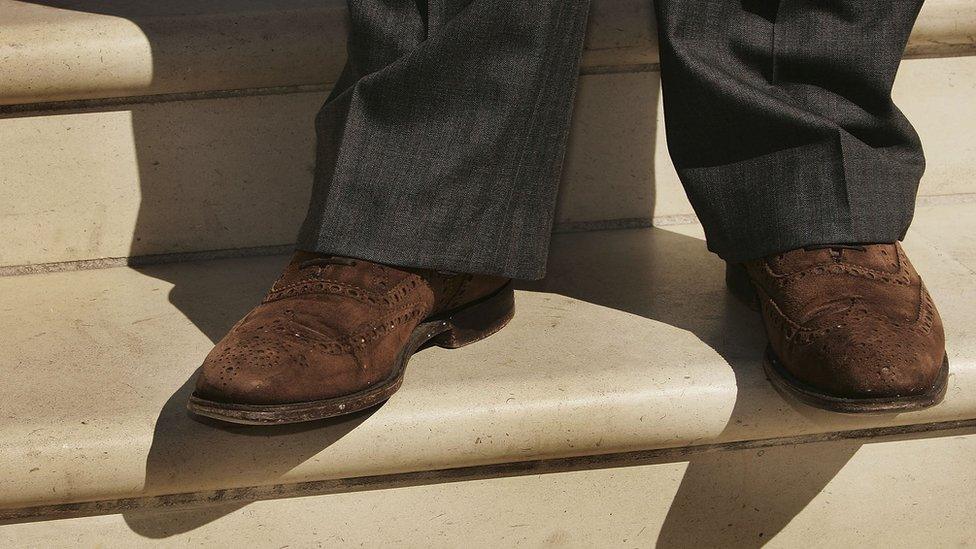
The British media often used to comment on Mr Clarke's love of Hush Puppies brown brogues
In 1990 Mr Clarke, then education secretary, was one of the so-called "men in grey suits" to advise Mrs Thatcher to resign.
He enjoyed success under John Major's government, initially continuing to serve as education secretary, but then moving to home secretary and eventually chancellor of the exchequer.
He defended John Major from critics in 1993 by pronouncing: "Any enemy of John Major is an enemy of mine."
He was the last chancellor to take advantage of the convention of being allowed to drink alcohol during the budget.
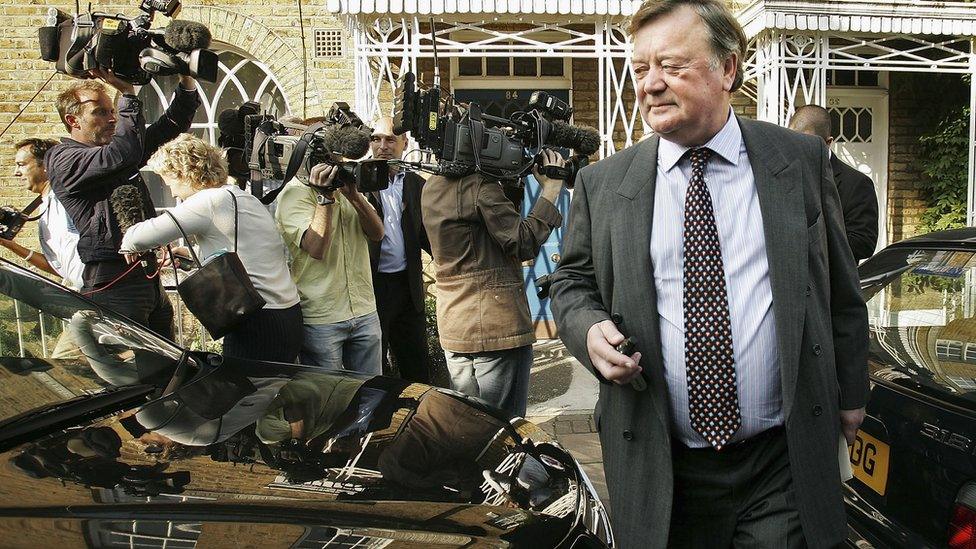
Mr Clarke put himself forward for the Tory Party leadership in 1997, 2001, and 2005, above
During his budget statements to the House of Commons, he would sip whisky at the despatch box.
Outside of politics, Mr Clarke is a lover of jazz.
While in London, he would often frequent Ronnie Scott's club to watch late night performances to calm down after a tough day at the despatch box.
He also presented several programmes for BBC radio, under the name Ken Clarke's Jazz Greats.
The parliamentary stalwart craved the position of leader of the Conservative Party, but failed during his three attempts in 1997, 2001, and 2005.
When the coalition government came to power in 2010, he was appointed justice secretary by David Cameron and then minister without portfolio, before retiring from frontbench politics.
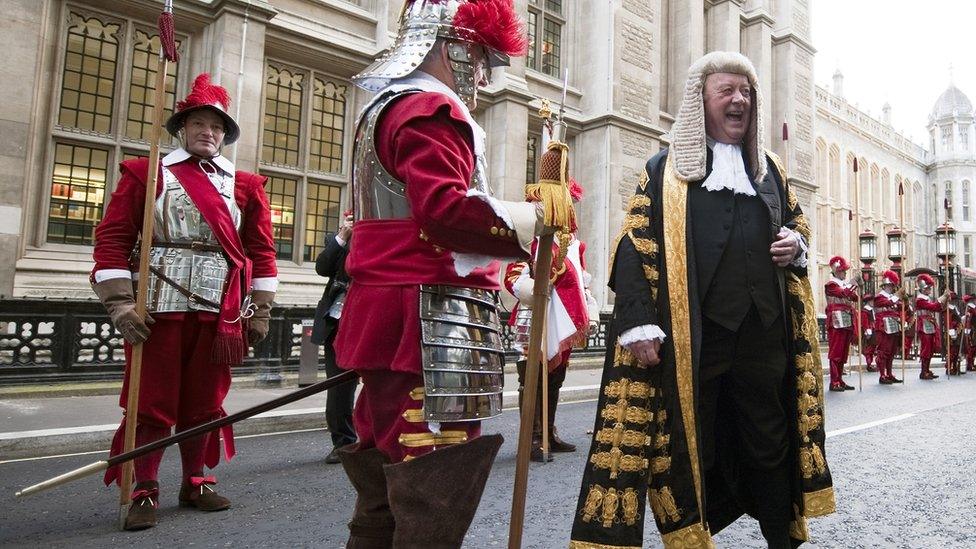
Mr Clarke returned to frontline politics when he was appointed to David Cameron's Cabinet in 2010
Throughout his Commons career, Mr Clarke has been unabashed about his support for Britain strengthening ties with the European Union.
His pontificating on the Government's EU bill in 2018 was enough to send prominent leaver Sir Desmond Swayne to sleep.
Sir Desmond Swayne listens to Ken Clarke's EU Bill speech
His staunch Europhile tendencies put off the Tory grassroots and ultimately led to his clash with the party leadership.
His attempts to prevent a no-deal Brexit have led him to be cast out of the Conservative Party, which he first joined while studying at Cambridge University in the 1950s.
His local association chairman, Neil Clarke, said it was "a sad end to an illustrious and distinguished career".
He added: "He has been fully aware of the anger amongst the association members at him threatening to vote against the government."
Neil Clarke, who said the search for a successor to The Father Of The House was "well under way", added "nobody needs to give him a lecture on how politics works".
Business Minister Kwasi Kwarteng defended the prime minister's decision to remove the whip from Mr Clarke and the other Tory rebels.
He told the Today programme: "It was very clearly stated that Conservative MPs would lose the whip.
"Now 21 of them out of 312 - that is about 6% - chose to vote against the government and they had the whip withdrawn.
"You cannot have people standing as Conservative MPs when they are against the government's policy on the key issue of the day."
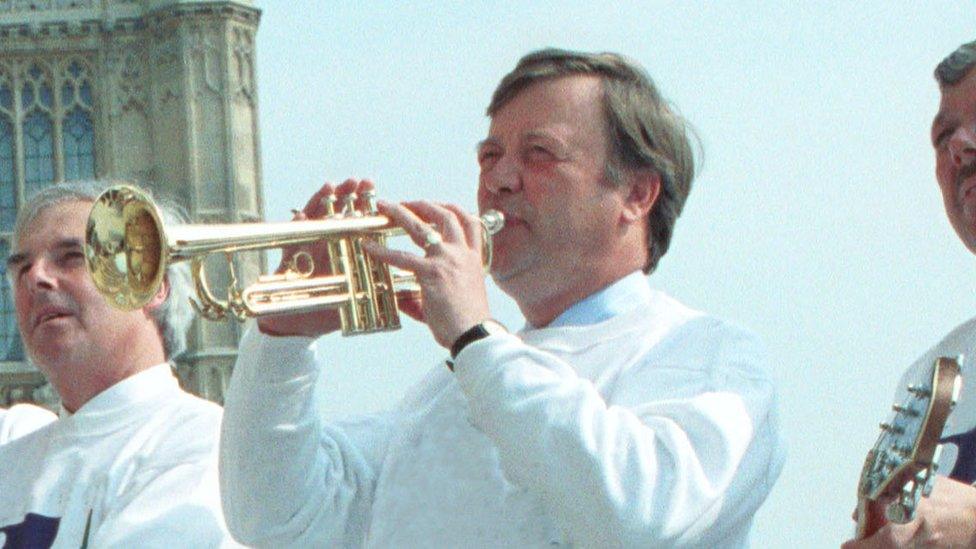
Mr Clarke began trumpeting his lifelong passion of jazz for BBC radio in 2002
Speaking after he lost the whip, Mr Clarke said he did not recognise the Conservative Party under Boris Johnson.
He said it had "been taken over by a rather knock-about character who's got this bizarre 'crash it through' philosophy".
Another of Mr Clarke's constituents said it was "very, very sad" and that he was "a good man".
One woman in his constituency told the BBC in West Bridgford: "I'm heartbroken that a statesman like that has been treated this way."
Even as recently as last month, the Commons' longest-serving MP was mentioned as a potential caretaker prime minister in a "government of national unity" by Liberal Democrat leader Jo Swinson.
So perhaps his retirement cannot be ruled out just yet.
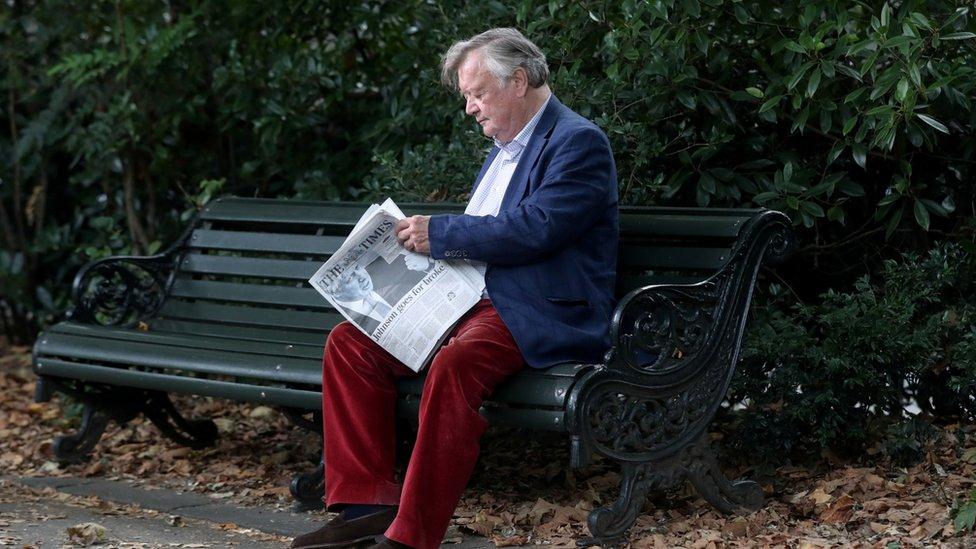
The Father Of The House was thrown out of the Conversative Party after sitting as an MP for 49 years

Follow BBC East Midlands on Facebook, external, Twitter, external, or Instagram, external. Send your story ideas to eastmidsnews@bbc.co.uk, external.
- Published4 September 2019
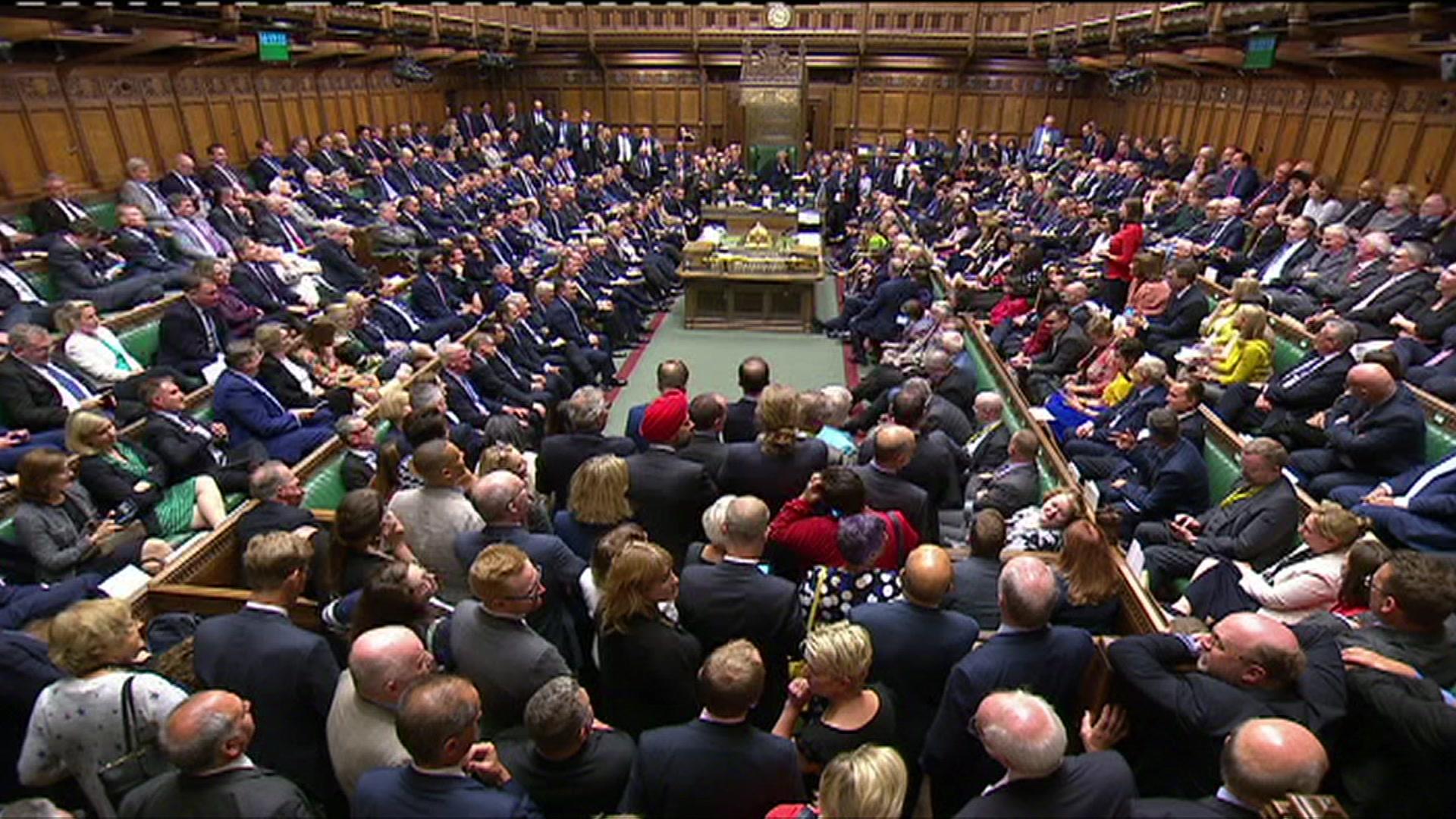
- Published5 September 2019
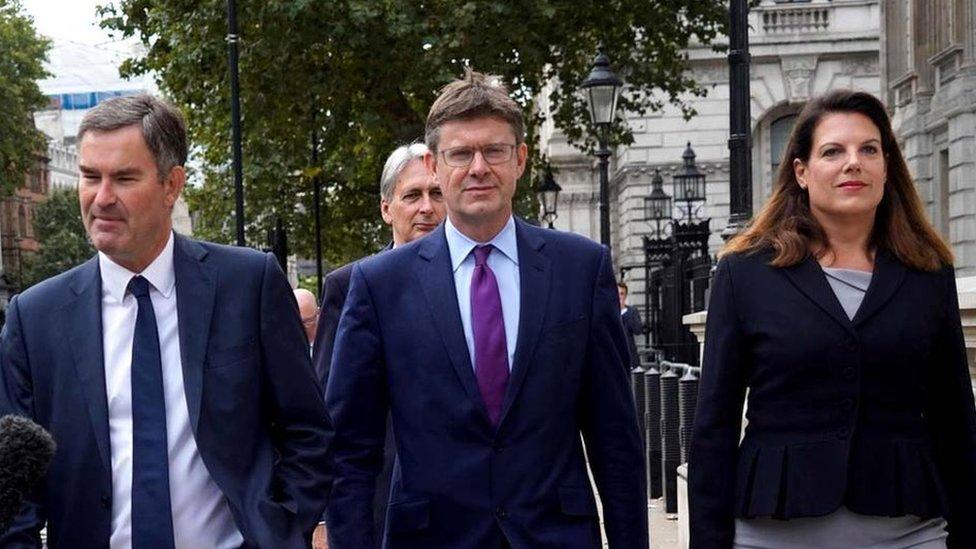
- Published16 August 2019
